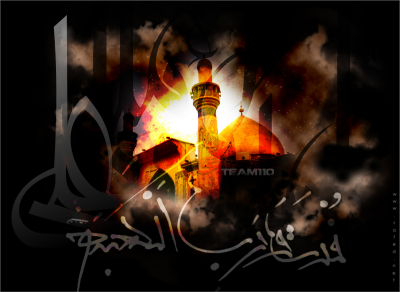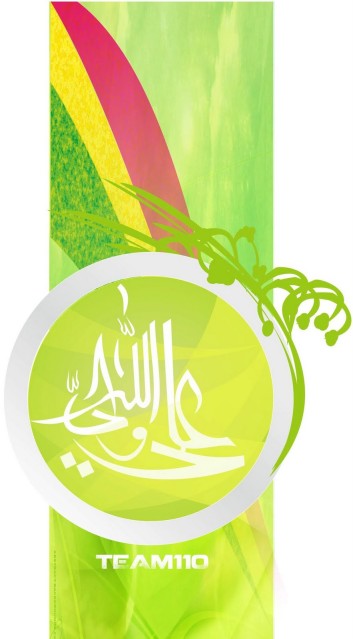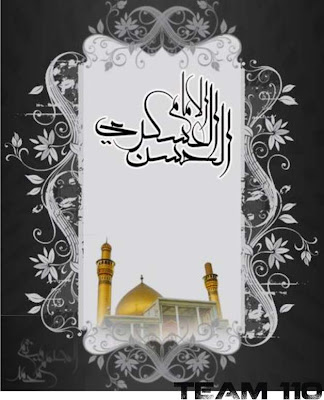Islamic Practical Laws: Wuzu and Ghusl
Wuzu is the cause for purification and is a desirable action in all conditions. One of the occasions on which wuzu becomes obligatory is Namaz.
In ablutions, it is essential that, after niyyat, one adheres to its proper sequence. That is, he must first wash the face, then the right hand followed by the left hand. After that, he should do masah (i.e. wiping of front portion of head and the upper portion of the feet).
- Lengthwise, it is obligatory to wash the face from the hairline at the top of the forehead, down to the chin. Breadth-wise, one must wash the area of the face covered by stretching the thumb and middle finger.
- Then, one must wash the right hand from the elbow up to the fingertips. One must wash from the elbow with the downward motion and should ensure each and every part of the hand is moistened from the elbow to the fingertips, both on the upper as well as the lower side.
After washing the right hand, the left hand must be washed likewise.
- Then one must perform the masah, by wiping the front portion of the head with the moisture from the water of the wuzu.
- It is not necessary that the masah should be on the scalp i.e. skin of head, it can also be done on the hair of the front portion. If the hair is long, then in this condition, he should do masah on the roots of hair or he should part the hair and do masah on the scalp.
- After the masah of the head, with the moisture remaining in the hand, one must do masah of the outward portion of the feet from the tip of the toes to the ankles with the palms. It is preferable that it should be wiped right up to the joint.
- Performing wuzu with usurped water or with water about which it is not known whether or not its owner is agreeable for it to be used, is unlawful and void.
- Performing wuzu with the water of the pools of madrasas, inns, hotels, etc. by persons who are not staying there is valid in case other persons who are not staying there also usually perform wuzu with that water.
- If a place on the body other than the limbs on which wuzu is performed is impure, the wuzu is in order. But to perform namaz, it is necessary to make that place paak.
- If there is so much gap between the acts of wuzu that when the person wishes to wash or wipe a place, the wetness of the place already washed or wiped by him has dried up, his wuzu will be void.
- It is unlawful to touch the words of Holy Quran with any part of one’s body without performing wuzu – however, there is no harm in touching, its translation in any language without performing wuzu.
- One should not touch without wuzu, the names of Allah, regardless of the language in which they may have been written.
- If a person performs wuzu or ghusl before the time for prayers in order to be in a state of purity, his wuzu/ghusl is in order.
- Wuzu becomes void and invalid on account of the following things:
- passing urine or stool or gas
- sleep on account of which one’s eyes do not see and ears do not hear
- actions on account of which, a person loses his senses, e.g. insanity, intoxication, unconsciousness. And all those actions for which ghusl becomes obligatory; like janaabat, menses (Istehaza), etc.
- If there is an open wound, or a fractured bone, on which wuzu has to be performed, and the use of water is not harmful, one should perform wuzu in the usual manner. If the wound or fractured bone has been dressed, and is on the part of the body where water for wuzu is to come in contact, then one can perform Wuzu-e-Jabira, if reopening the dressing and pouring water on the wound is harmful. Wuzu-e-Jabira means to place a pure piece of cloth on the wound and draw a wet hand on the cloth. However, the person must first wash the portion adjacent to the wound in the usual manner.
OBLIGATORY BATHS (GHUSL)
- There are seven occasions when ghusl becomes obligatory. Of these, four are for both, men as well as women viz.
- Ghusl-e-Janaabat,
- ghusl to fulfill a vow (nazr)
- ghusl for the corpse (mayyat)
- ghusl for the person who touches the corpse (mas-e-mayyat).
The remaining 3 kinds of ghusl are only for women.
- Ghusl-e-Hayz
- Ghusl-e-Nifaas
- Ghusl-e-Istehaazaa
- A person becomes unclean (mujnib) due to 2 reasons:
- Sexual intercourse
- Discharge of semen in a state of sleep or otherwise.
- The following five things are unlawful for an unclean person (mujnib):
- To touch with any part of one’s body the writing of the Holy Quran, names of Almighty Allah, Prophets and Imams (a.s.)
- Entering Masjidul Haraam (Khaana-e-Ka’ba) and Masjidun Nabi (in Medina) although it may simply be entering from one gate and exiting from the other.
- To stay in all other mosques and the shrines of the Holy Imams (a.s.). However, there is no harm if a person simply enters through one gate and goes out of another.
- To go and place something in the masjid.
- To recite verses of the Holy Quran which make prostration obligatory – viz. (i) 32:15, (ii) 41:38, (iii) 53:63, (iv) 96:19.
- Ghusl-e-Janaabat by itself is recommended (mustahhab), but becomes obligatory (wajib) for praying namaz or other acts of worship where cleanliness (tahaarat) is a condition.
- If one performs Ghusl-e-Janaabat, then there is no need to perform wuzu for offering prayers (namaz).
- The period of menses is from 3 days up to 10 days.
- During menstruation, a woman should abandon namaz as well as fasting. After she has become pure, it is not wajib for her to offer the namaz lapsed during the period of menses. However she should observe the obligatory fasts missed by her during this period. All those acts, which are unlawful for a mujnib, are unlawful for a haaizah. Having intercourse during menses is unlawful
- Divorce during menses is not valid.
- After post-menses purity, it is obligatory for her to perform ghusl for namaz and other acts of worship that should be performed with wuzu, ghusl or tayammum.
- The initial discharge of blood from the body of a woman, on the delivery of the child, is termed as Nifaas. It is possible that the blood of Nifaas is not discharged for more than a moment, but it doesn’t exceed 10 days. During the period of Nifaas, the order (ahkaam) for women is the same as during Haiz.
- If a person (man or woman) brings any part of his/her body in contact with, or touches, the corpse, which has become cold, and has not yet been bathed, then Ghusl-e-Mas-e-Mayyat becomes obligatory on him/her for all acts of worship where cleanliness is a condition
- Ghusl-e-Mase Mayyat becomes obligatory even on account of touching the corpse of a dead child or even a stillborn child, who has completed four months.
METHOD OF PERFORMING GHUSL
- There are two methods of performing Ghusl,
- Sequence bath (Ghusl-e-Tartibi),
- Immersion bath (Ghusl-e-Irtemaasi).
GHUSL-E-TARTIBI
After making intention a person should first wash his head and neck, then wash his right side of the body and then the left side. He should be sure that his body has been washed entirely. While washing one side he should also include some portion of the other side with it.
After making intention a person should first wash his head and neck, then wash his right side of the body and then the left side. He should be sure that his body has been washed entirely. While washing one side he should also include some portion of the other side with it.
GHUSL-E-IRTEMASI
It is necessary that the entire body should be suspended in water even if it is for a moment. In case a person dives in water with the intention of Ghusl-e-Irtemaasi and his feet touches the ground, then it is obligatory upon him to lift his feet momentarily.
It is necessary that the entire body should be suspended in water even if it is for a moment. In case a person dives in water with the intention of Ghusl-e-Irtemaasi and his feet touches the ground, then it is obligatory upon him to lift his feet momentarily.
- While performing Ghusl it is necessary that the entire body is clean and pure of najasat.
If while performing ghusl a part of body, however small it may be, remains unwashed then the ghusl is batil (invalid). But it is not obligatory to wash the inside of the nose or ears and other places, which are reckoned to be the interior of the body. - Performing Ghusl with usurped water or at an usurped placed makes the ghusl (baatil) void. If a person uses the public bath with the intention of deferring payment to its owner or to avoid paying the charges completely or to pay the charges from money acquired illegally, then his ghusl will be void.
- If a person has to perform more than one obligatory (wajib) ghusl, then he can perform one ghusl with multiple intentions (Niyyat).













